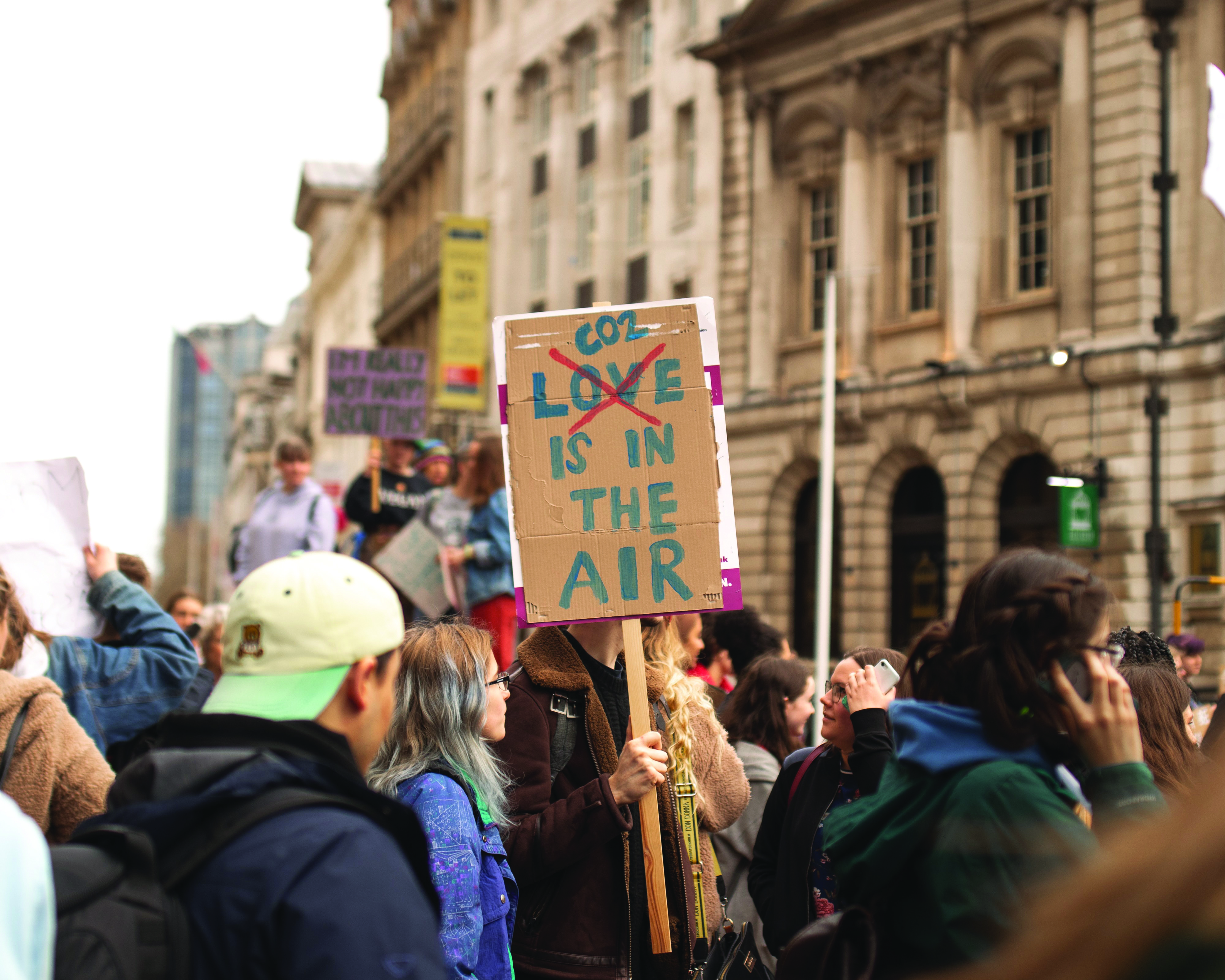Eco-friendly stockmarket
Stock Market investors are keeping an eye on companies that take sustainability seriously
by Claudia Mancini
Imagine you have to wake up every day with the mission to get the highest ROI possible of about US$ 9 trillion — an amount six times higher than the Brazilian GDP or five times that of Canada. That is the case of Larry Fink, BlackRock CEO, the world’s largest business asset manager, and shareholder. The executive and his team have been looking at both profitable and sustainable businesses for some time now.
The movement started in 2020 with the traditional annual letter to CEOs. Fink shook the business world with this statement: “evidence on climate risk is forcing investors to reevaluate core assumptions of contemporary finance.” It will “impact both our tangible world and the global system funding economic growth.” As interesting as this speech is, he manages to pull the line in other financial institutions, companies, and regions.
“Sustainable business” means the concepts of ESG (environmental social and governance), or, in Portuguese, ASG (“Ambiente, social e governança”). In 2004, the United Nations (UN), the World Bank, and the Government of Switzerland invited CEOs of the world’s largest financial institutions to discuss business corporations’ importance. In 2005, the report Who care wins and the acronym ESG emerged from those discussions.
“ESG is an investment classification. The format designed for the financial market to understand the issue, “says Carlos Braga, professor of finance and ESG of Fundação Dom Cabral business school and advisor to several companies. Financiers must understand this concept since climate risks are clear, affect business and society, and new generations know it. “The millennials and Z generations will account for 75% of the workforce by 2030, and they only rely on companies with positive socio-environmental impact. Mindful CEOs and advisors know that this attitude generates money”, he adds.
The E of environmental in the acronym is frequently in the list of companies’ most significant concerns. Millany, the Canadian consultancy, which works at ESG in financial institutions, conducted a study with the country’s largest institutional investors, with approximately US$ 2 trillion under their management. According to this study, 81% of those investors believe that climate change will be among their three engagement priorities in 2021. In contrast, for 56%, it will be the crucial one.

unsplash callum shaw
The issuance of securities linked to sustainable goals and projects and ESG funds is the most visible result of this shift in the financial sector considering sustainability for assessing companies’ risks and value. In Brazil, a land of enviable biodiversity but also of criminal environmental destruction, the issuing of green bonds from January to March 4, 2021 total was US$ 5,48 billion. Companies such as paper manufacturer Klabin, Banco Itaú, and Movida for car rental did it. Surprisingly, that figure exceeded last year’s total of US$ 5,3 billion — figures that already accounted for more than double 2019 (US$ 2.24 billion), according to the NGO Sitawi Finanças do Bem.
Thus, ESG generates money. There is also investors’ eagerness for investments with lower cash returns- because rates tend to be lower than traditional investments, however with better returns for society.
This appetite prevails in São Paulo stock Exchange, B3. Since 2005, At the Corporate Sustainability Index (ISE) launching, the yield was 285,88% until early March 2021. According to the consultancy Economática, if compared to the average performance index of the shares on the Stock Exchange, the Ibovespa was 253,35%. One can notice that ESG shares yielded about 10% more than the others.
At São Paulo stock Exchange, B3, from 2005 , when the Corporate Sustainability Index (ISE) was launched, until early March 2021, the ESG shares yielded about 10% more than the others
It is worth mentioning that environmental-related issues today go beyond the apparent aspects just as planting trees: it encompasses a wide range of actions, including water usage, waste management, air pollution in communities surrounding the company, and construction of dams. Even the concept of “planting trees” became more sophisticated as synonymous with recovering forests with the native species of each biome.
In Brazil, the catastrophic dam collapse of Mariana in 2015 and Brumadinho in 2019 made it clear the high cost a company must pay for disregard of environmental conservation – especially the Brumadinho disaster, which had 259 fatalities and 11 missing people. Vale, a partner in the first collapse and owner in the second, saw its market value melt. Confidence in the business and the brand has plummeted, and the company is having to pay for the damage. To this day, Brumadinho is remembered as a perfect example of things not to do.

It is worth mentioning that environmental-related issues today go beyond the apparent aspects just as planting trees: it encompasses a wide range of actions, including water usage, waste management, air pollution in communities surrounding the company, and construction of dams. Even the concept of “planting trees” became more sophisticated as synonymous with recovering forests with the native species of each biome.
In Brazil, the catastrophic dam collapse of Mariana in 2015 and Brumadinho in 2019 made it clear the high cost a company must pay for disregard of environmental conservation – especially the Brumadinho disaster, which had 259 fatalities and 11 missing people. Vale, a partner in the first collapse and owner in the second, saw its market value melt. Confidence in the business and the brand has plummeted, and the company is having to pay for the damage. To this day, Brumadinho is remembered as a perfect example of things not to do.
One of Vale’s problems was not having the environmental concern embedded in its culture and operation at all levels. This commitment to ESG concepts is essential for a company to thrive and show effective results to stakeholders, including investors and banks. The pressure is more than ever towards “walk the talk.” BlackRock, for example, said it would demand pollution reduction targets from its members and cut investments in coal-related companies. Besides, it has voted against boards non conform with their sustainability precepts.
“A company may even advertise sustainability to the media, but if it disappoints costumers, it has a risk of suffering individual and collective lawsuits. Therefore, sustainability actions must come with ethics,” warns Brahim Bitar, a partner at Fonseca Brasil Advogados, which has offices in São Paulo and northern Brazil and mining companies in their portfolio. The lawyer also emphasized that environmental issues permeate virtually all financial contracts, and non-compliance with the clauses generates penalties.
Klabin, Brazil’s largest producer and exporter of packaging paper and a leader in the production of paper packaging, says the company has long and continuous efforts dedicated to the environmental issue cross-sectionally in the business and adopted at all business levels —starting with its board, shareholders and founding family. This effort is reflected in several actions, such as preserving the native forest and endangered species, daily habits in their sites, and even sustainable-based goals bonuses provided. The company launched the Klabin 2030 Agenda at the end of 2020, with 23 goals aligned with the UN Sustainable Development Goals.

Larry Fink, BlackRock; Júlio Nogueira, Klabin; Heiko Spitzeck e Carlos Braga, Fundação Dom Cabral; Guillaume Lerage, TMX Group; Brahim Bitar, Fonseca Brasil Advogados; Sebastian Soares, KPMG
“We aim at building a sustainable economy. This is our strategic driver and part of our decision-making agenda”, says Júlio Nogueira, Klabin’s corporate sustainability and environment manager. The company’s business comes straight from the forests. However, its uses in production are taken from the 258,000 hectares of planted area. There are also another 240,000 hectares of preserved native forest, exceeding the percentage determined by law.
By the way, doing more than legal requirements is a trend among companies that understood how ESG is essential and the opportunities available through this concept. By acting in this way, they likely are anticipating compliance with future requirements, enhancing their added value. “The framework of social and environmental regulation is mandatory with different impacts in each sector. The effort of looking for other ways to manage the company’s impact, such as setting energy-saving targets, fuel, and carbon pricing, connects with the need to become or remain resilient in constantly changing risk scenarios,” explains Sebastian Soares, KPMG’s lead partner in corporate governance in Brazil.
Because it is not always easy or not all companies think about it as they should, the Toronto Stock Exchange (TSX), for example, supports companies when it comes to the need to adapt or improve their ESG policies and reports. This is also for TSX Venture Exchange startups. According to Guillaume Lerage, head of South America at TMX Group, “the mining companies have pulled the ESG movement and are passing it on to other sectors of the stock market.” The sector accounts for 1,129 companies listed on TSX and TSXV; of these, 90% have a sustainability report.
“You may not become CEO for having an affinity for sustainability values.However, you could lose your job if you do not have it”
According to a survey of KPMG, Canada is among the countries with the highest sustainability reporting rates for the most prominent companies. The country’s rate rose from 84% in 2017 to 92% in 2020. Brazil remained at 85% in this period. Regulation usually explains the higher percentages, but another factor occurred in the last three years: increased scrutiny of the financial sector and investors concerning sustainability and ESG. Although Brazil is behind other countries, it can quickly close this gap, says professor and counselor Braga.
Given this scenario of increased investor pressure for ESG policies, ignoring this new way of functioning in the corporate world can be costly for professionals, especially the highest-ranking ones. Some companies are now selecting their CEOs and advisors based on their alignment or, at the very least, their willingness to align with ESG. Although this hiring movement is not intense, as Heiko Spitzeck, director of the Sustainability Center at The Dom Cabral Foundation, recalls, you may not become CEO for having an affinity for sustainability values. However, you could lose your job if you do not have it.

Partners:

Sign up and download the new edition of Explore Magazine!
Share:



